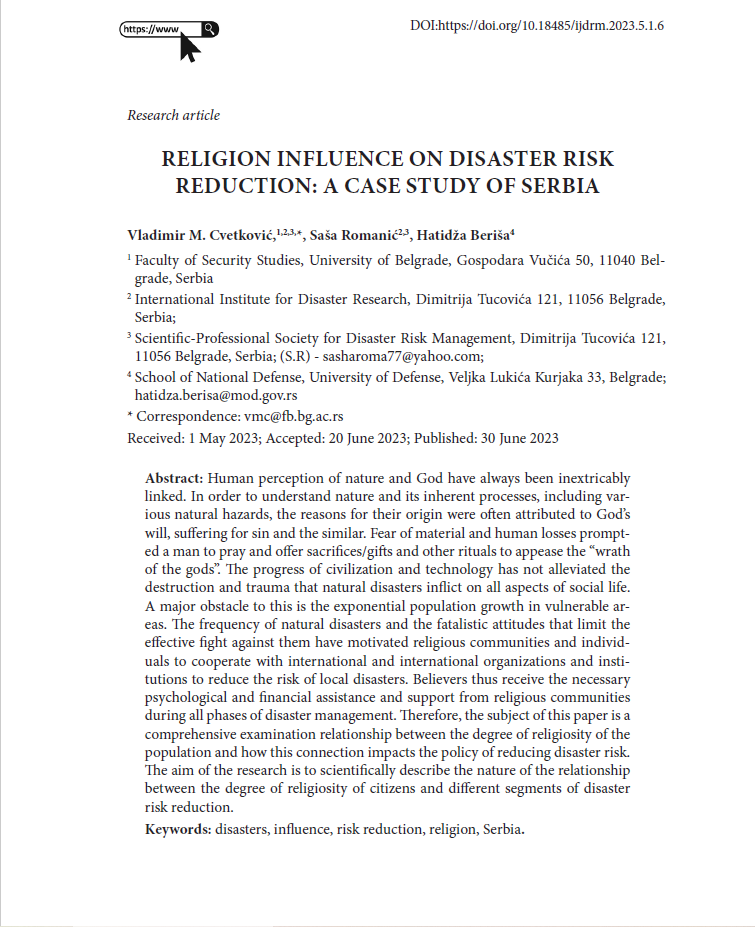Religion influence on disaster risk reduction: A case study of Serbia
Cvetković, V., Romanić, S., & Beriša, H. (2023). Religion influence on disaster risk reduction: A case study of Serbia. International Journal of Disaster Risk Management, 5(1), 66–81. Research article RELIGION INFLUENCE ON DISASTER RISK REDUCTION: A CASE STUDY OF SERBIA Vladimir M. Cvetković,1,2,3,*, Saša Romanić2,3, Hatidža Beriša4 1 Faculty of Security Studies, University of Belgrade, Gospodara Vučića 50, 11040 Bel- grade, Serbia 2 International Institute for Disaster Research, Dimitrija Tucovića 121, 11056 Belgrade, Serbia; 3 Scientific-Professional Society for Disaster Risk Management, Dimitrija Tucovića 121, 11056 Belgrade, Serbia; (S.R) – sasharoma77@yahoo.com; 4 School of National Defense, University of Defense, Veljka Lukića Kurjaka 33, Belgrade; hatidza.berisa@mod.gov.rs * Correspondence: vmc@fb.bg.ac.rs Received: 1 May 2023; Accepted: 20 June 2023; Published: 30 June 2023 Abstract: Human perception of nature and God have always been inextricably linked. In order to understand nature and its inherent processes, including var- ious natural hazards, the reasons for their origin were often attributed to God’s will, suffering for sin and the similar. Fear of material and human losses prompt- ed a man to pray and offer sacrifices/gifts and other rituals to appease the “wrath of the gods”. The progress of civilization and technology has not alleviated the destruction and trauma that natural disasters inflict on all aspects of social life. A major obstacle to this is the exponential population growth in vulnerable ar- eas. The frequency of natural disasters and the fatalistic attitudes that limit the effective fight against them have motivated religious communities and individ- uals to cooperate with international and international organizations and insti- tutions to reduce the risk of local disasters. Believers thus receive the necessary psychological and financial assistance and support from religious communities during all phases of disaster management. Therefore, the subject of this paper is a comprehensive examination relationship between the degree of religiosity of the population and how this connection impacts […]
Read more